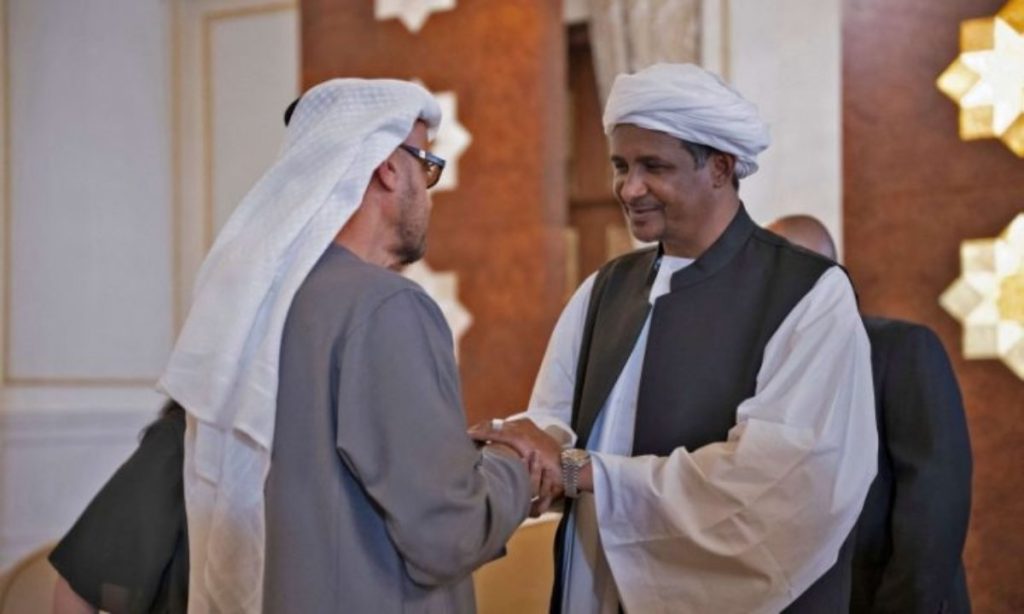Watan-Under the title “UAE, China, Russia, and Iran: Who is Supplying Sudan with Weapons in Its Ongoing War?”, the French magazine Jeune Afrique reported that General al-Burhan’s control of the Sudanese capital, Khartoum, marks a significant shift in the war he has been fighting for two years against General Hemedti. However, it will not necessarily bring an end to the civil war, which is fueled by large-scale smuggling of weapons and military equipment despite a UN-imposed embargo.
The French weekly pointed to Abdel Fattah al-Burhan’s announcement two days ago from the presidential palace, declaring the “liberation” of Khartoum, saying: “Khartoum is free… it’s over.” Circulated images showed General al-Burhan wearing military uniform, surrounded by armed men, walking through the building that bears the scars of battle.
The capture of Khartoum, after a week of fierce fighting, is a major turning point in the two-year conflict with General Mohamed Hamdan Dagalo, known as “Hemedti.” Nevertheless, Jeune Afrique stressed that control of the capital will not end the bloody civil war. Although al-Burhan’s forces now control, in addition to the capital, the eastern and northern regions of the country, the Rapid Support Forces (RSF) maintain dominance over most of Darfur.
In mid-February, the RSF announced its intention to form a parallel government after a meeting in Nairobi, Kenya, with several armed groups, including the Sudan People’s Liberation Movement–North, which operates in the south of the country. In response, the African Union warned of “the risk of the country’s division.”

Drones, Deaths, and Diplomacy: Sudan’s War Spills Toward Chad
According to the latest United Nations statistics, the civil war has resulted in more than 18,000 civilian casualties since it began in April 2023. The organization noted that “civilians are being subjected to artillery shelling, airstrikes, and drone attacks,” adding that “the most affected areas are the South Kordofan and Blue Nile states.”
In this context, Jeune Afrique noted that both sides increasingly rely on combat drones—manufactured in China, Iran, and Serbia—whether military-grade or civilian drones modified for military use. The situation is growing more complicated, with rising fears of the conflict spreading to neighboring countries.
On March 23, the commander-in-chief of Sudan’s armed forces, loyal to al-Burhan, declared that “the airports of N’Djamena and Am-Djarass are legitimate targets.” In response, the spokesperson for Chad’s Ministry of Foreign Affairs, Ibrahim Adam Mohamed, warned that “such statements could be interpreted as a declaration of war,” affirming that “Chad reserves the right to respond forcefully to any attempted aggression.”
UAE Shifts Strategy from Chad to Central African Republic Amid Rising Tensions
Al-Burhan’s forces accuse Chad of facilitating the transfer of weapons and military equipment from the United Arab Emirates to the RSF—a charge N’Djamena strongly denies, in turn accusing Sudan of meddling in its internal affairs and supporting rebellions to destabilize the country.
Jeune Afrique went on to say that, in support of Hemedti’s forces against al-Burhan, Abu Dhabi formed an alliance with Chad. However, rising tensions in N’Djamena are pushing the Emiratis to seek an alternative solution in the Central African Republic.
Although the UAE has continued in recent months to send equipment through N’Djamena (after having long done so via Am-Djarass in the east), Chadian President Mahamat Idriss Déby Itno has, according to a Chadian security source—and despite hesitation from some of his advisers—decided to scale back cooperation with Abu Dhabi. As a result, talks have begun between the UAE and the Central African Republic, which borders Chad and could offer the same logistical capabilities to support the RSF, according to the French magazine. It confirmed that the Emiratis are seeking to use both Bangui airport and Birao airport in the east of the country.
